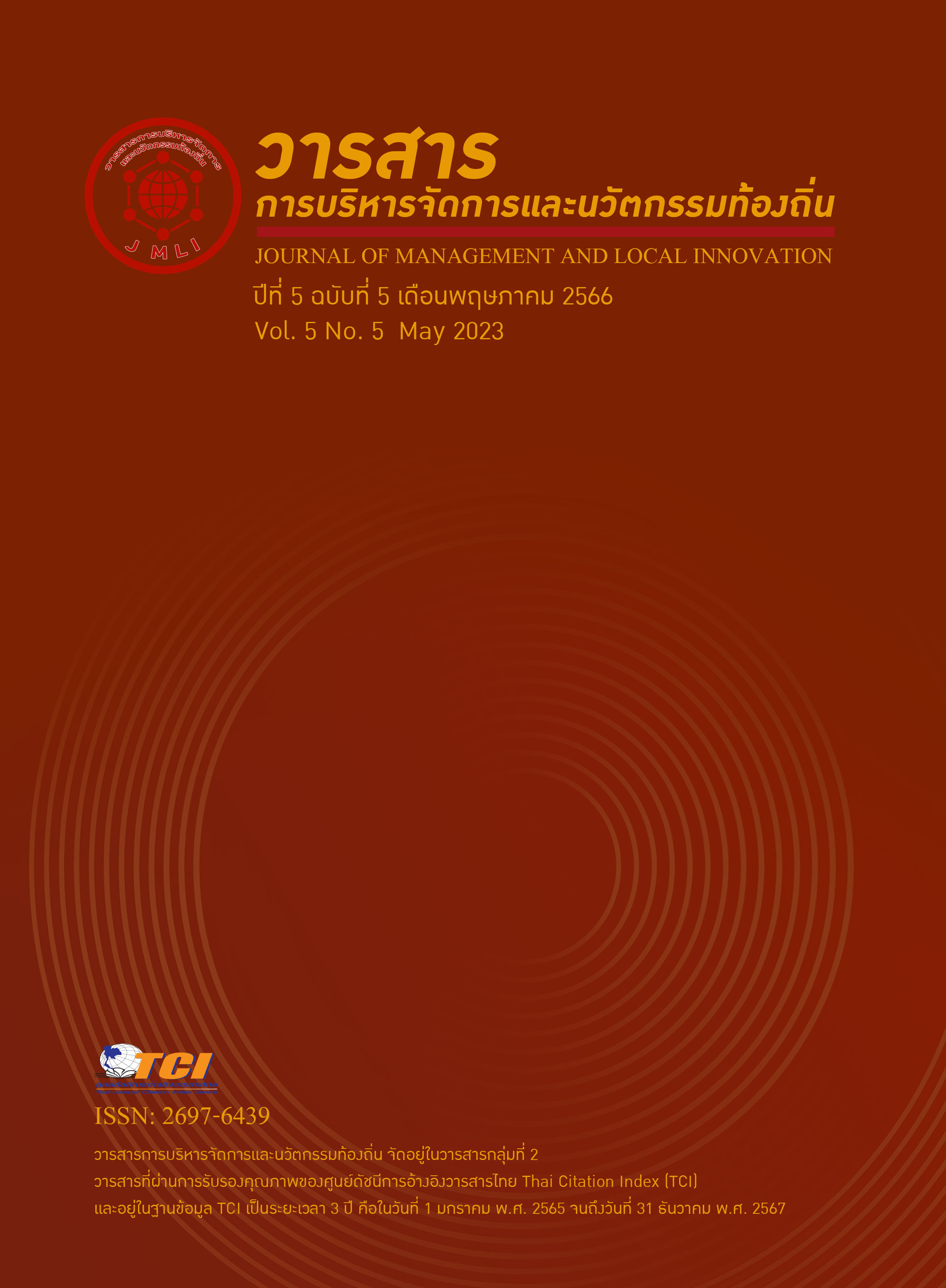Personnel Administration of Small-Sized School Administrators under Satun Primary Educational Service Area Office
Keywords:
Personnel administration, Personnel development, Small-sized school administratorsAbstract
The research on the personnel administration of small-sized school administrators under Satun Primary Educational Service Area Office aimed to study the level of personnel administration of small-sized school administrators under the supervision of the Satun Primary Educational Service Area Office. The samples of the study were 159 teachers working in small-sized schools in Satun Primary Educational Service Area Office in the academic year 2022 using questionnaires to collect the data. The statistics for data analysis were frequency, percentage, mean, and standard deviation. Independent Sample t-test and F-test statistical techniques were used for testing values.
The results of the study were:
1) The overall personnel administration of small-sized school administrators under the supervision of the Satun Primary Educational Service Area Office was at a high level.
2) The comparison of the personnel administration of small-sized school administrators under the supervision of the Satun Primary Educational Service Area between gender and working experiences in overall was significantly different in statistics at the level of 0.05, however, education level overall was no difference.
3) The recommendations for personnel administration of small-sized school administrators were that they should 1) analyze the teacher’s and educational personnel’s tasks and assign their positions in advance, 2) make the information of the personnel systematically and assign them the tasks that match their knowledge and abilities, 3) encourage self-discipline, ethics and behaving as good teachers, and increase the personnel’s abilities in all fast-growing technologies, 4) create network groups that promote educational efficiency, observe classes, follow up and evaluate the performance regularly and constantly, and 5) provide welfare in addition to the welfare allocated by the government to boost morale to the personnel and consider the personnel’s merits using their performance appraisal results with transparency, honesty, and fairness.


